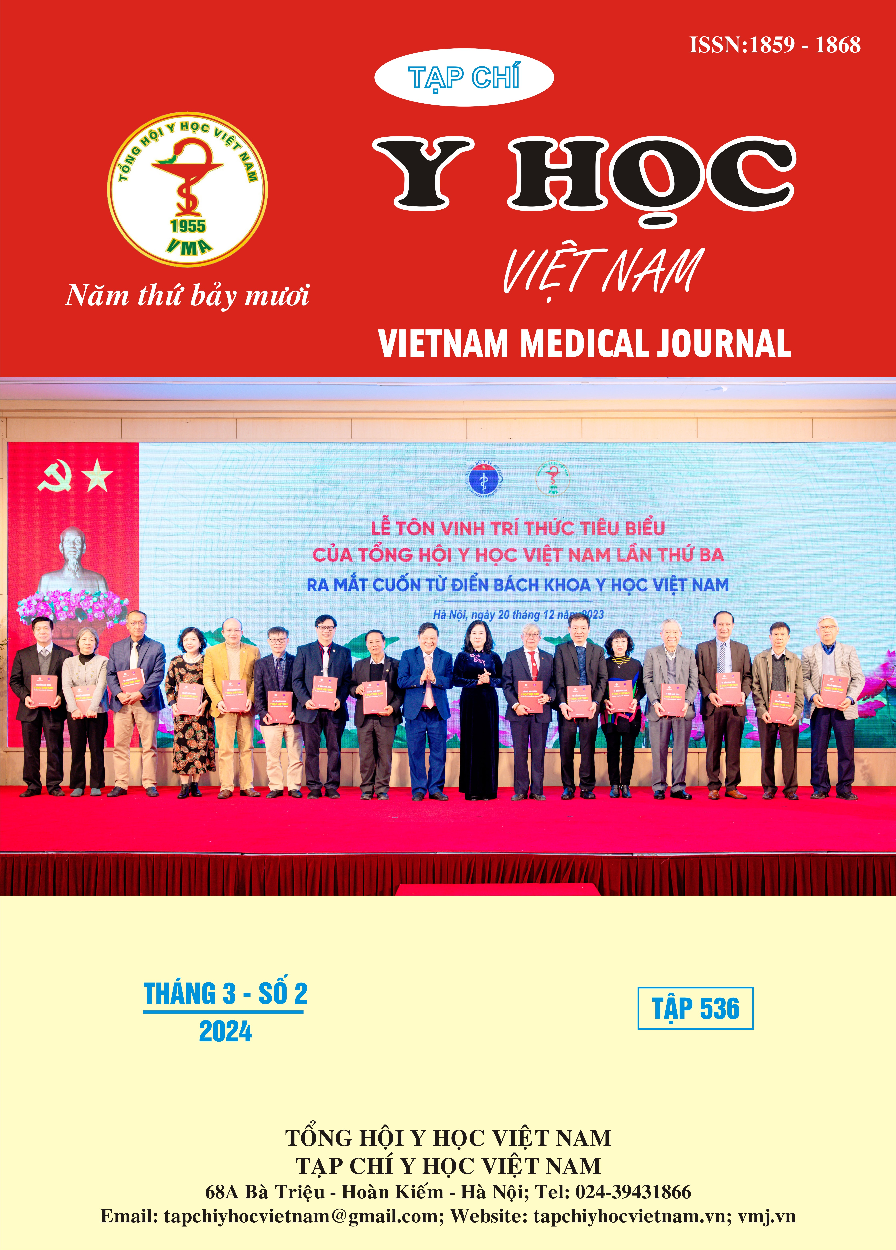EVALUATION OF THE AFFICACY OF REGORAFENIB REGIMEN IN AVANCED COLORECTAL CANCER PATIENTS
Main Article Content
Abstract
Objective: Evaluation of the afficacy and safety of Regorafenib regimen in advanced colorectal cancer patients at K Hospital. Methods: The retrospective descriptive study followed 46 advanced colorectal cancer (mCRC) patients were treated with Regorafenib at K Hospital from January 2021 to November 2023. Assessment included response rate, progression-free survival (PFS), overall survival (OS), safety, and prognostic factors related to the treatment protocol. Results: From January 2021 to November 2023, 46 patients were enrolled in the study. Response rate was 21.7%. Disease control rate was 39.1%. The median PFS was 4.5 months, and OS was 10.3 months. The rate of hematologic and non-hematologic adverse effects was low. The most common being dermatological and mucosal side effects at 91.3%. Conclusion: The Regorafenib regimen for advanced colorectal cancer patients was showed favorable outcomes in disease control.
Article Details
References
2. Gill S Blackstock AW, Goldberg RM. (2007), Colorectal cancer, Mayo Clin Proc. 82, 114-29.
3. Phase III CORRECT Trial of regorafenib for mCRC, Cancer Management and Research. 2020:12, 5365- 5372.
4. Phase III CONCUR Trial of regorafenib for mCRC, Lancet Oncol 2015; Vol16:6, 19-29.
5. Phase II ReDOS Trial of regorafenib for mCRC, Lancet Oncol 2019,Vol 20: 1070-82.
6. RWE CORRELATE - Real-world dosing of regorafenib (REG) in mCRC - Final results from the prospective, observational CORRELATE, Annal Oncology, Vol29:10, 463.
7. Phase III IMblaze370 Trial, Atezolizumab with or without cobimetinib vs regorafenib in previously treated mCRC, Lancet Oncol 2019.


